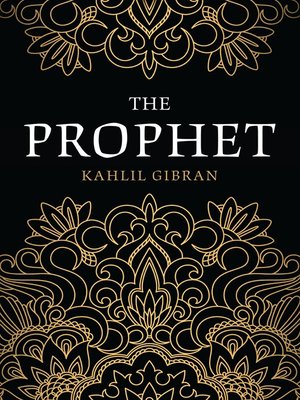
Relationships, in particular, the romantic ones, where we seek intimacy, attention and belongingness to reveal ourselves are nothing but a fine equilibrium of longing to retain our individuality and our deepest desire to merge with someone else.
In order to maintain this equilibrium, we constantly seek advice from the dating coaches, spiritual gurus, friends and many alike. In this context, Lebanese Poet and Novelist Kahlil Gibran’s classic work ‘The Prophet’ is a sublime collection of insights, not only covering life’s several dimensions and ethical dilemmas but also the essential elements of a relationship.
Lucid and moving prose poems contained in ‘The Prophet’ inspire us not only to question our ideas of love, togetherness and marriage but also push us to go deeper through these facets of life.
Armed with heightened imagery and filled with the sublime wisdom, Gibran’s Magnum Opus, ‘The Prophet’ is a wonderful guide to deal with very common dilemmas of the modern relationships.
Acceptance: One of the primary reasons of entering into the relationships is our deepest desire to be accepted, by someone else, in our totality. Some of the problems we face in the relationships are due to our tendency to accept or rather appreciate only a part of the person which is pleasant to us, the situations and turns in the relationship which are comfortable for us. Gibran offers his insights in this regard, hinting towards the need for higher degree of acceptance;
“ But if in your fear you would seek only love’s peace and love’s pleasure,
Then it is better for you that you cover your nakedness and pass out of love’s threshing floor,
Into the season less world where you shall laugh, but not all of your laughter, and weep but not all of your tears.”
Space: Space in a relationship is where we breathe, a place between us where the seeds of intimacy and desire can grow. It is essential to give space to the person we care so that he or she can grow as per his or her own potential. In his own metaphorical style, Gibran talks about the importance of the space in a relationship;
“But let there be spaces in your togetherness.
And let the winds of the heavens dance between you.
Love one another, but make not a bond of love:
Let it rather be a moving sea between the shores of your souls.”
Vulnerability: We seek intimacy to lay ourselves bare without caring how the scars and wounds deep beneath would be perceived by the other, to reveal ourselves without being defensive. In other words, we feel comfortable in a relationship where we can be vulnerable. Gibran hints at being vulnerable in his own words when he talks about the idea of ‘giving’:
“ You give but little when you give of your possessions.
It is when you give of yourself that you truly give.”
Equanimity: Equanimity is one of the highest ideals that one can pursue to stay calm and composed during the twists and turns of life, and relationships also demand to remain equanimous in certain situations when things seem falling apart. Sometimes, we avoid the relationships due to the roller coaster of emotions, it may put ourselves in. Gibran’s words inspire us to counter the ups and downs of a relationship with an equal ease:
“ When you are joyous, look deep into your heart and you shall find it is only that which has given you sorrow that is giving you joy.
When you are sorrowful, look again in your heart, and you shall see that in truth you are weeping for that which has been your delight.
Some of you say,” Joy is greater than sorrow”, and others say, “Nay, sorrow is the greater”
But I say unto you, they are inseparable.
Pain: Relationships are like a rainbow where we experience different colours and shades of our emotions, not only through the pleasant moments but also through the moments which are painful. Unfortunately, we tend to avoid or choose not to experience the painful moments that we may encounter all of a sudden and thus lose an opportunity to know something about ourselves, our deep emotions. Gibran’s words redefine our understanding about the pain and inspire us to face these moments with more grace:
“Your pain is the breaking of the shell that encloses your understanding.
Even as the stone of the fruit must break, that its heart may stand in the sun, so must you know the pain.
And could you keep your heart in wonder at the daily miracles of your life, your pain would not seem less wondrous than your joy.
And you would accept the seasons of your heart, even as you have always accepted the seasons that pass over your fields.
And you would watch with serenity through the winters of your grief.”
If the relationships are fragile, Gibran’s fragile words loaded with the deep meaning are complimentary for any relationship.

